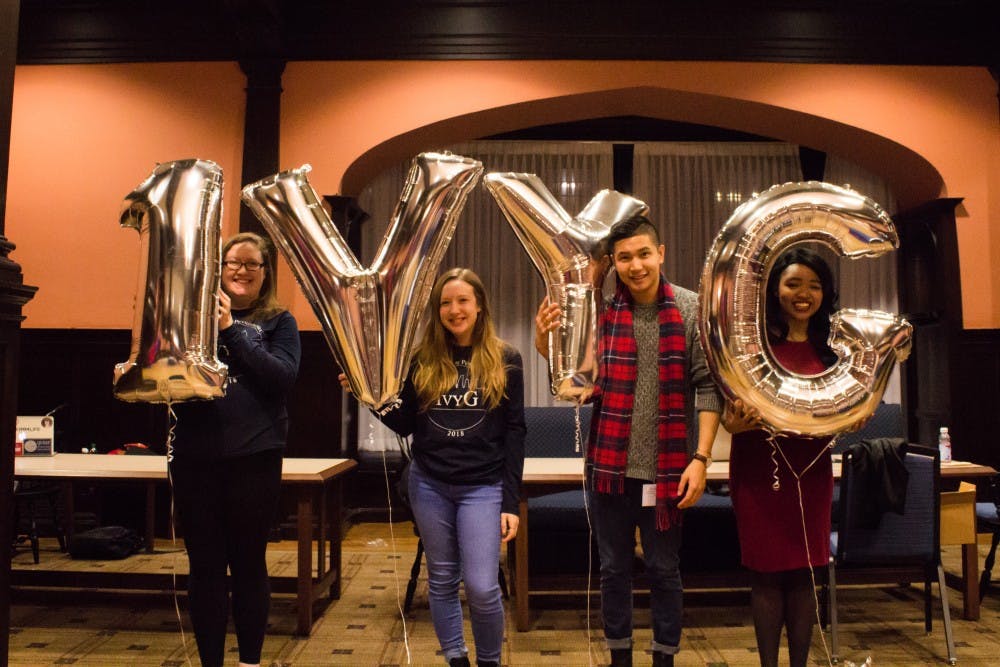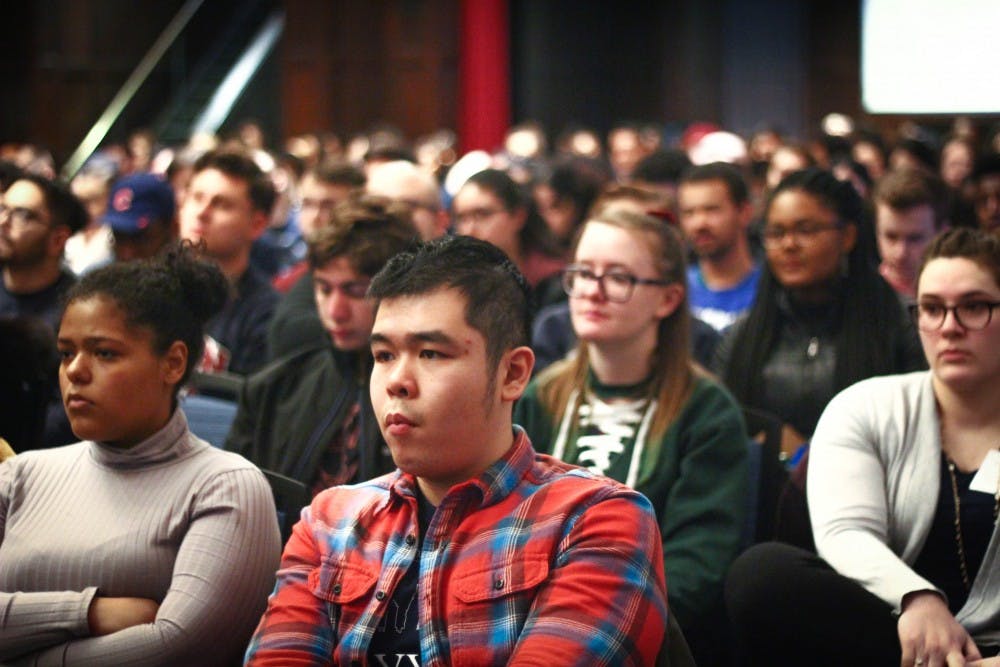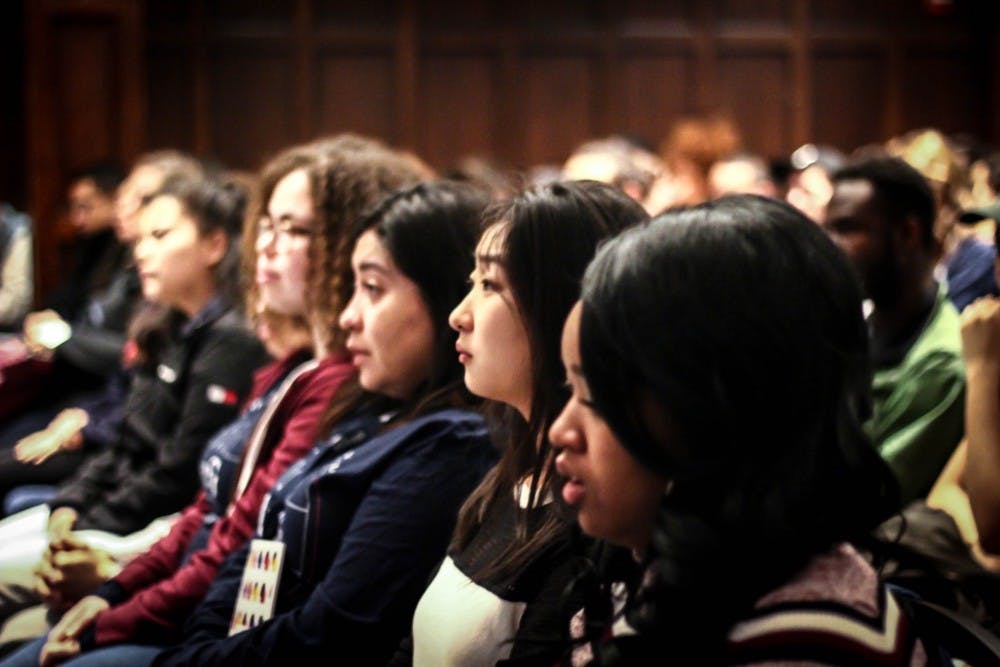
During the final day of the first 1vyG conference held at Penn, participants explored how they could implement what they had learned into their daily collegiate lives.
The fourth annual conference included more than 350 first-generation and low-income students from over 20 colleges across the nation. They spent the day meeting in discussion groups to share what they had learned and attended breakout sessions to discuss issues relevant to the first-generation low-income community.
Session topics included “First Gen Dreams: Reconciling Ambition, Social Mobility, and Home,” “Being A Minority Within the Minority,” and “Thinking of Grad School?”
One panel explored how FGLI students could give back to the communities around them. Philadelphia nonprofit leaders discussed topics including privilege in community service and whether FGLI students have a responsibility to be service leaders.

“There’s no achievement gap, there’s an opportunities gap,” Director of MAKUU Brian Peterson, a 1993 Engineering graduate, who received his master's in education from Penn in 1997 as well as his Ph.D. from the University in 2013, said about being a FGLI student, gaining snaps of approval from the audience.
In another session titled “What I Wish I Knew”, student leaders discussed questions that they faced as FGLI students. They talked about saving money on textbooks and dining, finding the right academic advisor, and navigating college social life.
“I think the biggest learning curve I had was learning how to ask for help,” one panelist said during the discussion.
The closing ceremony featured a speech from Wil Del Pilar, vice president of higher education policy and practice at The Education Trust, an academic advocacy group. Del Pilar talked about his own experience as a first-generation student.
“This conference is important to me because I am you,” he said. “I was the first person in my family to go to college. I blazed the trail and so are you.”
Del Pilar also stressed the importance of finding mentors and supportive peers and discussed the challenge of FGLI students not feeling that they belong.
“You have just as much knowledge, you have just as much understanding, you have just as much of a right to be in that room as those other people,” he added.

Del Pilar concluded by urging first-generation students to serve as educational advocates.
“Conversations are happening at the institutional, at the state, and at the national level about college students,” he said. “You have to ensure that your voice is a voice that is included in those debates.”
Students said that they appreciated both the formal programming and the connections they formed with peers.
Katelyn Liston, a freshman at Carnegie Mellon University, said that she enjoyed attending a session that taught students how to organize and press administrators to meet their needs.
Nonetheless, she noted that she gained the most from speaking to her fellow students.
“The fact that we all can come together and discuss these events really freely and openly and feel comfortable doing so is absolutely incredible and amazing,” Liston said.
Jocelin Gregorio-Alarcon, a senior at Lehigh University, echoed this sentiment.
“I’ve never been able to relate to another group of people more than I did at this conference,” she said. “It’s been very nice to finally put words and feelings and validation into what my experience as a first generation student has been like.”
Gregorio-Alarcon said that she wished that sessions had been live streamed and that the conference’s career fair had been less focused on consulting. However, she added that the event had helped her think of ways to improve her own college experience.
“It’s given me a lot of ideas that’s working at other institutions that could potentially be implemented at my university,” she said.
The Daily Pennsylvanian is an independent, student-run newspaper. Please consider making a donation to support the coverage that shapes the University. Your generosity ensures a future of strong journalism at Penn.
Donate



